1. Grand Funk Railroad
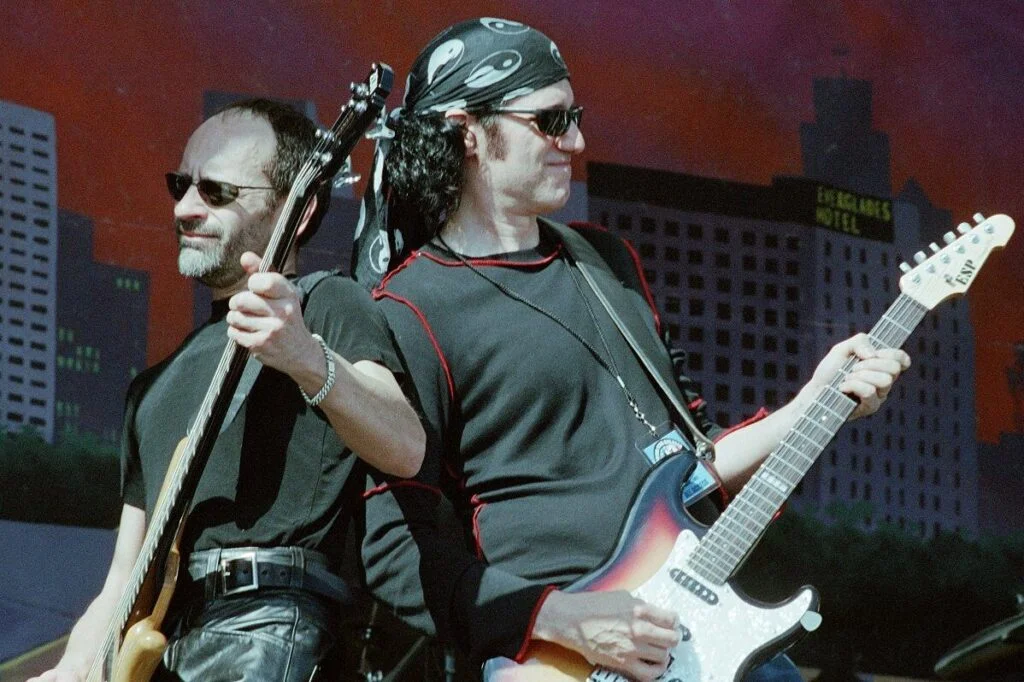
In the early ’70s, Grand Funk Railroad was everywhere. Their mix of hard rock and bluesy energy filled stadiums, and songs like “We’re an American Band” made them household names. They had that gritty Midwestern attitude that connected with working-class fans, and for a while, they were one of the most bankable live acts in the country. Mark Farner’s stage presence and Don Brewer’s pounding drums made them feel unstoppable.
But by the end of the decade, their sound started to feel dated. Musical trends were shifting toward disco, punk, and new wave, and the band couldn’t quite keep up. They tried a few comebacks in different forms, but the magic of their prime years never returned. These days, they’re remembered as a snapshot of ’70s arena rock excess.
2. Foghat
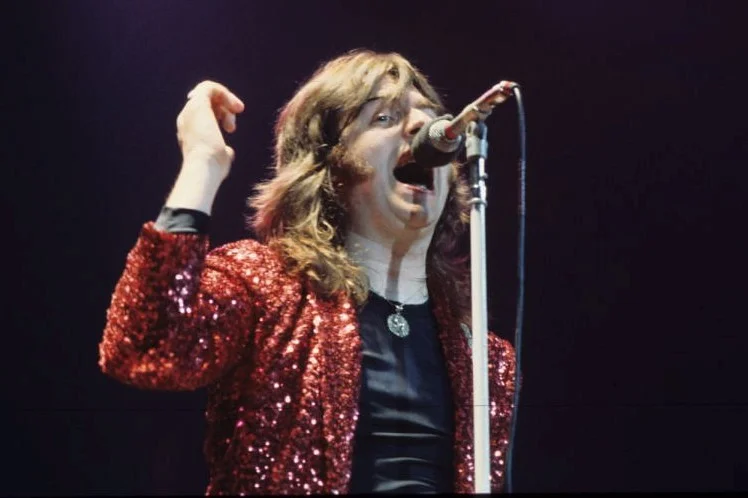
Foghat became famous for one thing: boogie rock. Their biggest hit, “Slow Ride,” is still a staple on classic rock radio and instantly takes people back to the bell-bottom era. They had a raw, blues-driven style that felt perfect for long drives with the windows down. For a few years, they were part of nearly every rock festival lineup you could imagine.
Eventually, though, their sound became too repetitive for fans who were looking for something new. As the ’80s rolled in, Foghat faded from the spotlight, though they never completely disappeared. They still tour with different lineups, but they’ll always be tied to that one monster hit that defined their career.
3. Bachman-Turner Overdrive
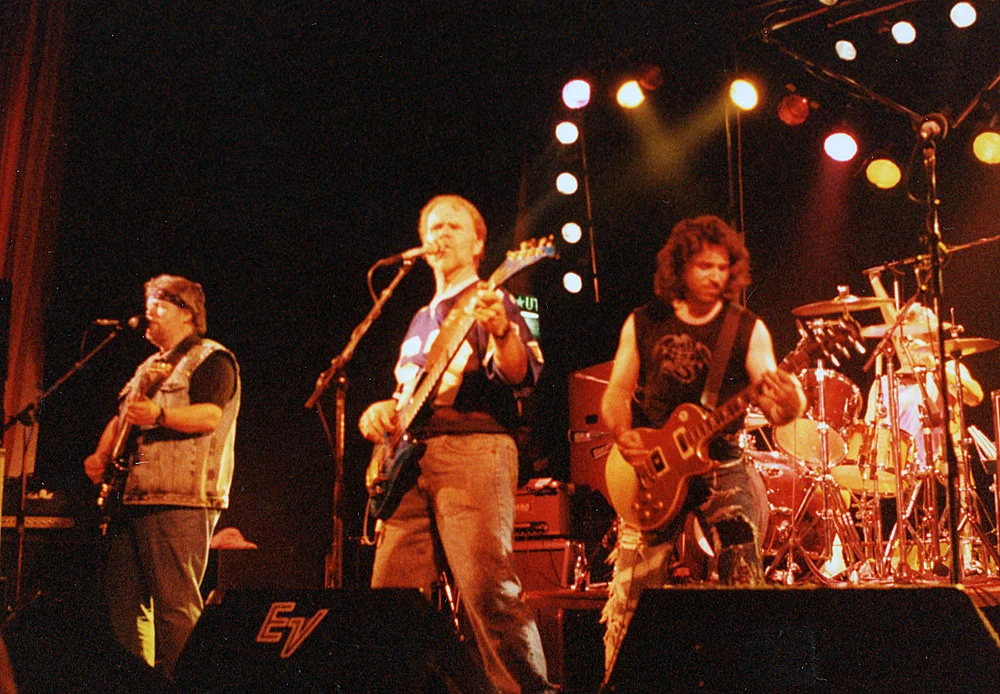
BTO had a formula that worked: heavy riffs, driving rhythms, and lyrics that spoke directly to everyday people. “Takin’ Care of Business” and “You Ain’t Seen Nothing Yet” were anthems of the mid-’70s. For a while, they rivaled some of the biggest acts in rock and sold millions of records. Randy Bachman’s knack for catchy guitar hooks kept them on the charts.
But that success didn’t last forever. Creative tensions and lineup changes eventually took the air out of the band. By the late ’70s, they couldn’t maintain the same momentum, and younger rock fans turned their attention elsewhere. Today, BTO’s legacy lives on mostly through classic rock playlists and commercials.
4. Blue Öyster Cult
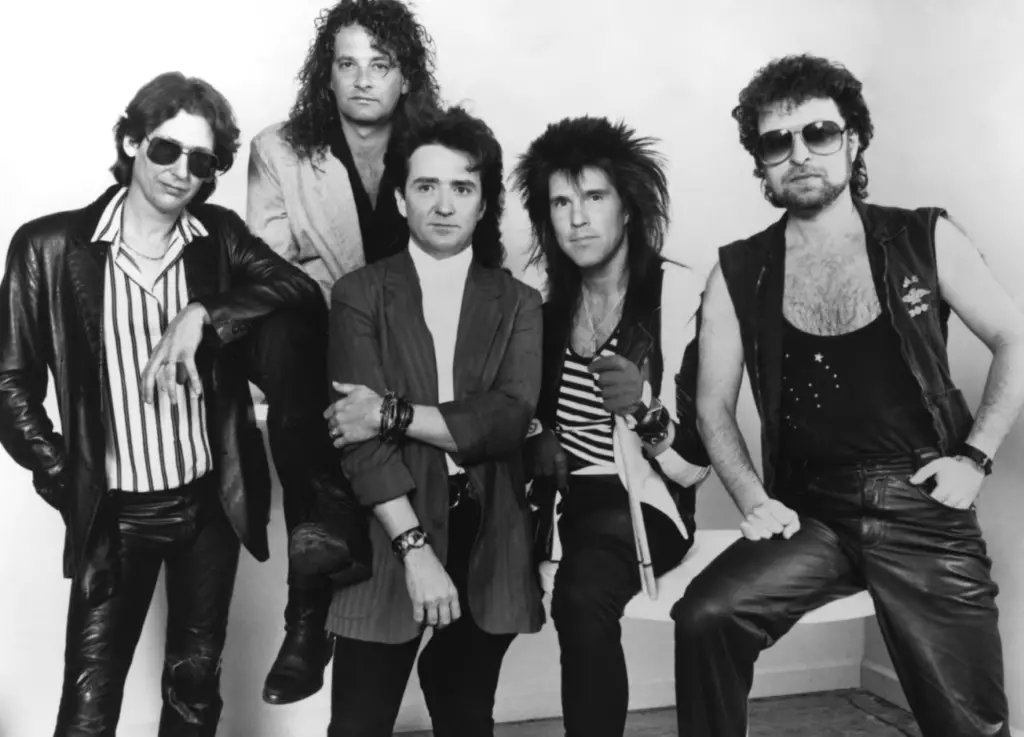
With their mysterious image and songs like “(Don’t Fear) The Reaper,” Blue Öyster Cult seemed destined for legendary status. They had a darker, almost theatrical edge that set them apart from other mainstream rock bands. Their concerts were known for being loud, moody, and unforgettable. For a while, they were riding high alongside other arena rock acts.
But their experimental sound also made it hard to stay consistent. By the late ’70s and into the ’80s, they struggled to keep up with evolving trends. While they’re still remembered fondly, they never reached the sustained heights many thought they would. That cowbell joke on Saturday Night Live may actually be what keeps them most alive in pop culture.
5. The Sweet
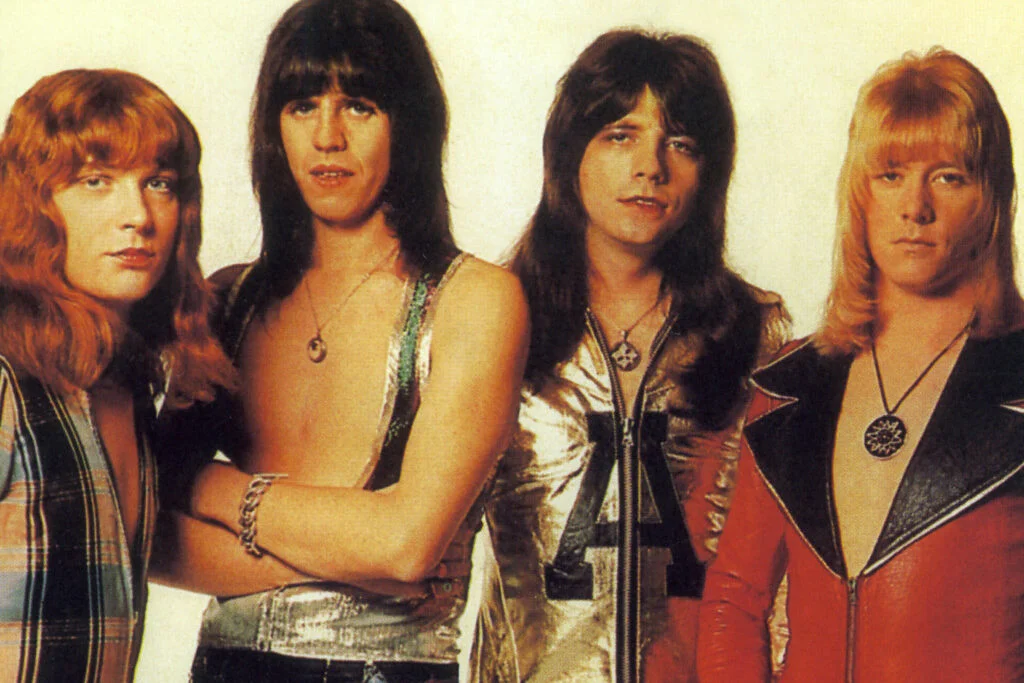
The Sweet were huge in the glam rock scene of the ’70s. With hits like “Ballroom Blitz” and “Fox on the Run,” they delivered catchy hooks and flashy performances. They were colorful, loud, and fun, which made them perfect for the era’s over-the-top fashion and music trends. For a while, it seemed like they could take over the world.
Unfortunately, behind the scenes, the band was plagued by management issues and constant fighting. By the end of the decade, their momentum had slowed dramatically, and they never found a way to adapt. While their music still pops up in movies and TV shows, The Sweet didn’t hold onto mainstream success once the ’80s arrived.
6. Styx (’70s version)
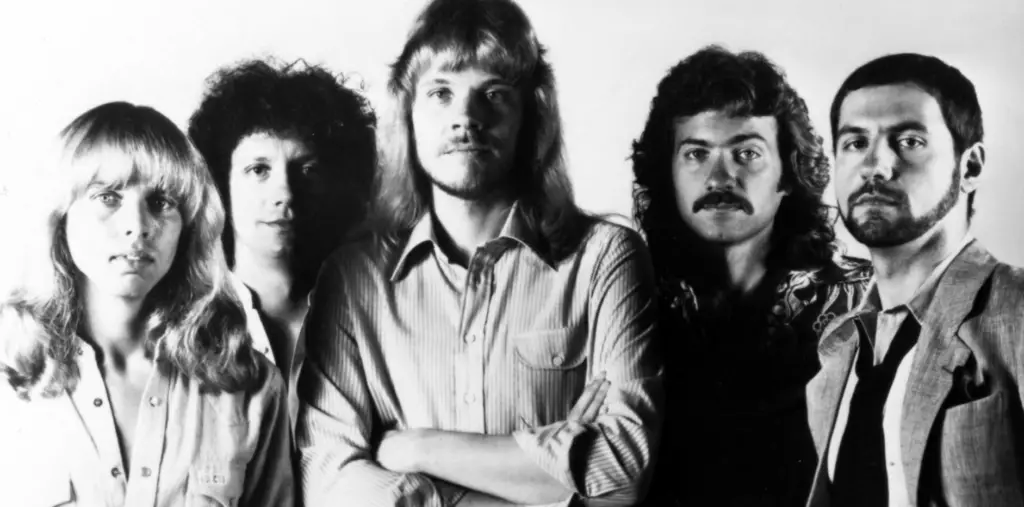
Styx had a run of arena rock hits in the ’70s, with songs like “Come Sail Away” and “Lady.” Their blend of progressive rock and theatrical ballads gave them a distinct niche. Dennis DeYoung’s soaring vocals became instantly recognizable, and their shows drew huge crowds. By the end of the decade, they seemed on top of the world.
But cracks in the band soon began to show. Creative battles over whether to be more pop or more prog pushed them apart. While they had a second wave in the early ’80s, their ’70s momentum fizzled, leaving them stuck in that awkward space between critical respect and commercial burnout.
7. Kansas
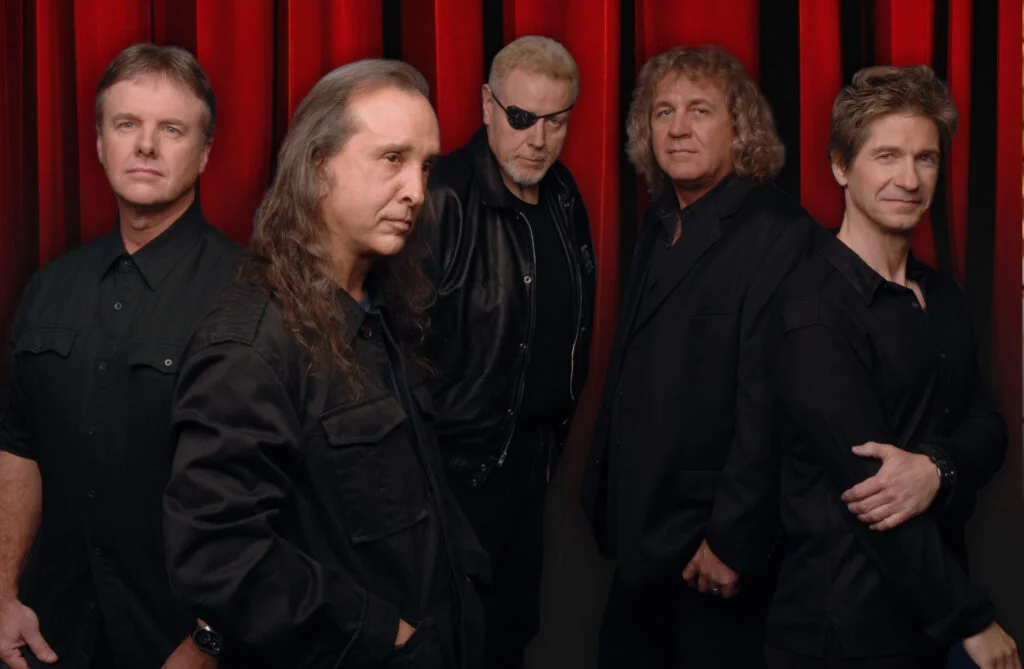
Kansas had a signature sound that combined progressive rock with heartland sensibilities. Songs like “Carry On Wayward Son” and “Dust in the Wind” made them radio staples. Their complex arrangements and strong musicianship set them apart, and they built a passionate fan base. At their height, they filled arenas and were considered one of the most technically gifted bands around.
Still, their elaborate sound didn’t age well as the music world shifted. By the early ’80s, their popularity dipped, and lineup changes drained their identity. They’ve kept touring in various forms, but they never again hit the cultural peak they had in the ’70s. Most people today just know the two big hits.
8. Black Oak Arkansas
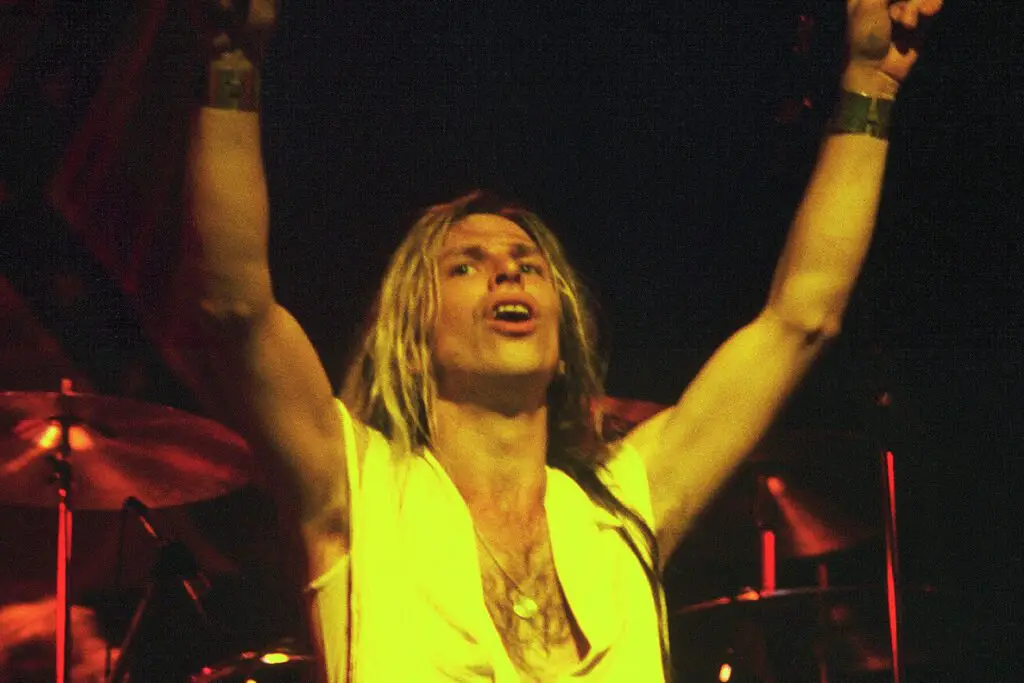
Black Oak Arkansas was all about Southern rock swagger. With Jim “Dandy” Mangrum leading the charge, they had a wild stage act that got attention everywhere they went. Songs like “Jim Dandy” made them staples on the festival circuit. For a few years, their blend of rock and country-infused showmanship really clicked.
Still, they never quite reached the heights of peers like Lynyrd Skynyrd. As musical tastes shifted, their appeal began to shrink. By the time the ’80s rolled around, they were more of a novelty act than a powerhouse. Their legacy now lives on mostly in Southern rock nostalgia.
9. Mountain
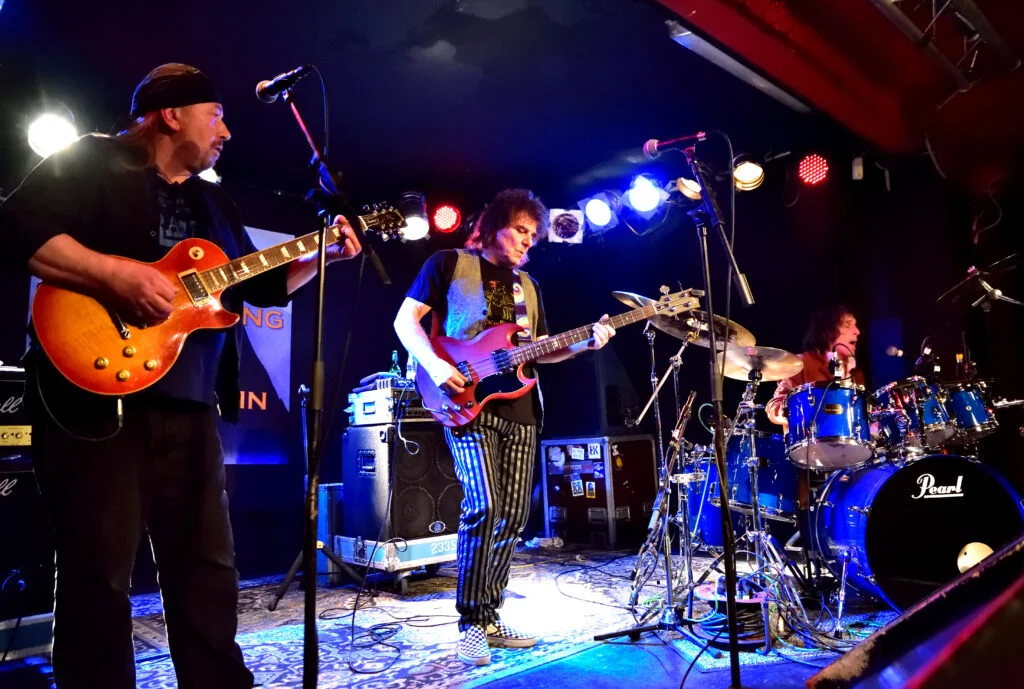
Mountain’s claim to fame is “Mississippi Queen,” a song that has never really left the rock canon. Leslie West’s guitar work and booming voice gave the band a distinct sound. They played Woodstock, which helped launch them into stardom early on. For a while, they were seen as one of the heavier bands of the early ’70s.
But their success didn’t last. Internal issues and constant lineup changes weakened their momentum. They never produced another hit on the scale of “Mississippi Queen.” Today, they’re remembered more for that one classic track than their overall body of work.
10. Uriah Heep
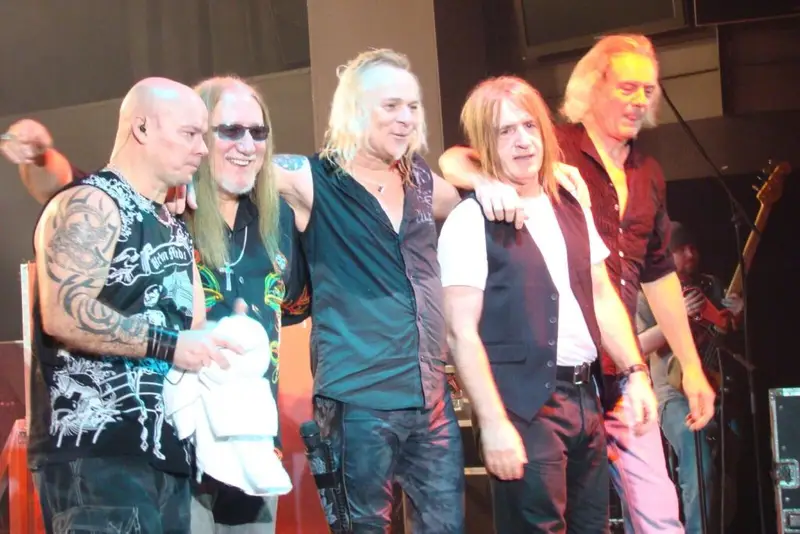
Uriah Heep had a sound that blended hard rock with prog elements, making them stand out in the early ’70s. Their songs had big choruses, heavy organ riffs, and a fantasy-like vibe that appealed to a lot of listeners. They were especially popular in Europe and even cracked into the U.S. charts. At their peak, they shared stages with some of the biggest acts in the world.
Yet they never managed to sustain mainstream success. Critical reception was often harsh, and by the late ’70s, they were overshadowed by both heavier metal acts and more radio-friendly bands. They kept making music, but they never again reached the level of attention they had in their early years.
11. Three Dog Night
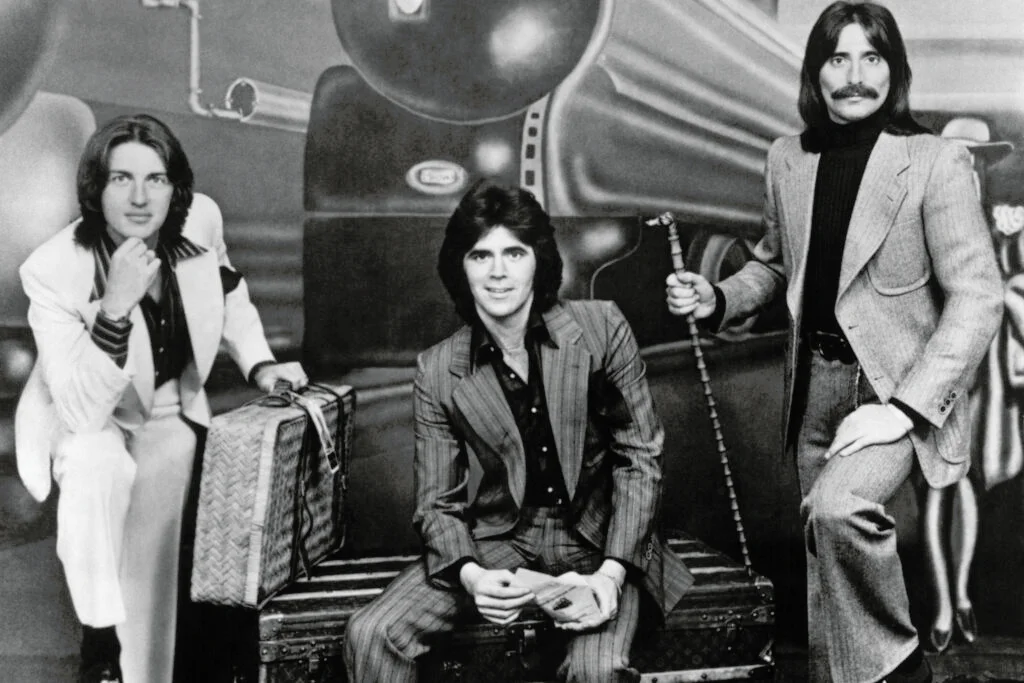
Three Dog Night were everywhere in the early ’70s. With three lead singers and a knack for picking catchy songs, they churned out hit after hit like “Joy to the World,” “Mama Told Me Not to Come,” and “Shambala.” They were polished, radio-friendly, and one of the most reliable chart-topping acts of their era. For a while, you couldn’t escape them.
But their success was built on interpreting other writers’ songs rather than building a signature sound of their own. When tastes shifted, they had trouble keeping up, and by the mid-’70s, their dominance started to fade. They never reached that same level again, leaving many casual fans surprised at how quickly such a huge band slipped away.
12. Blood, Sweat & Tears
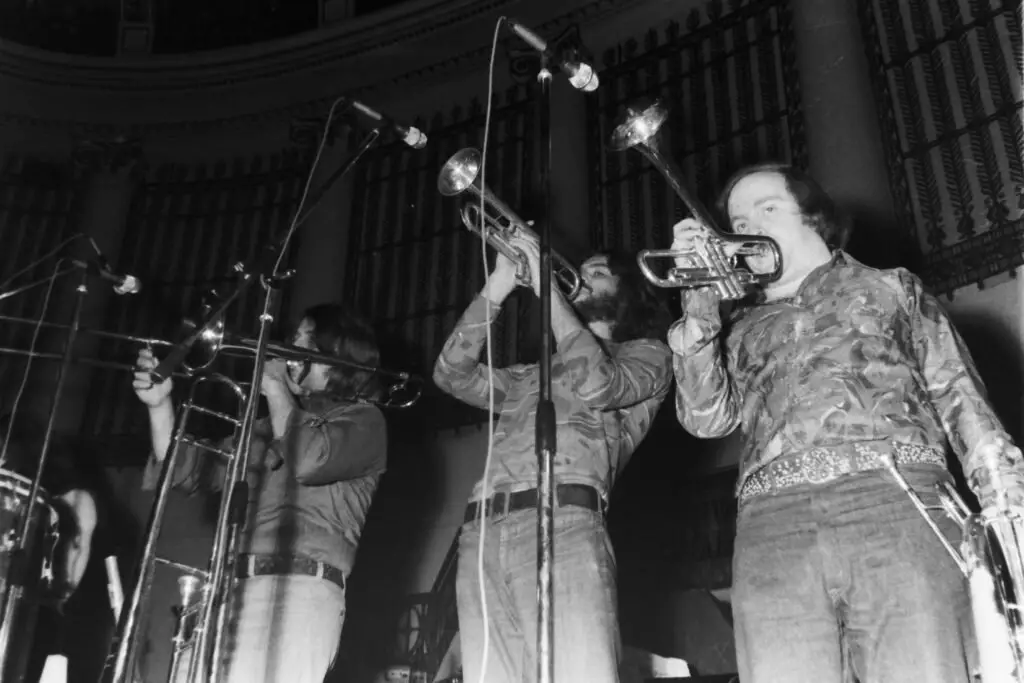
Blood, Sweat & Tears were one of the first bands to really mix rock with horns, creating a jazzy, brassy sound that stood out from the crowd. Their second album, with hits like “Spinning Wheel” and “You’ve Made Me So Very Happy,” turned them into one of the biggest names of the late ’60s and early ’70s. For a while, they seemed poised to be the future of rock.
But as the decade went on, the formula wore thin. Lineup changes and constant shifts in style kept them from maintaining momentum. By the late ’70s, they were playing smaller venues while the rock world moved on to harder and flashier acts. Today, their hits live on as classics, but the band itself largely faded from the spotlight.
13. The Raspberries
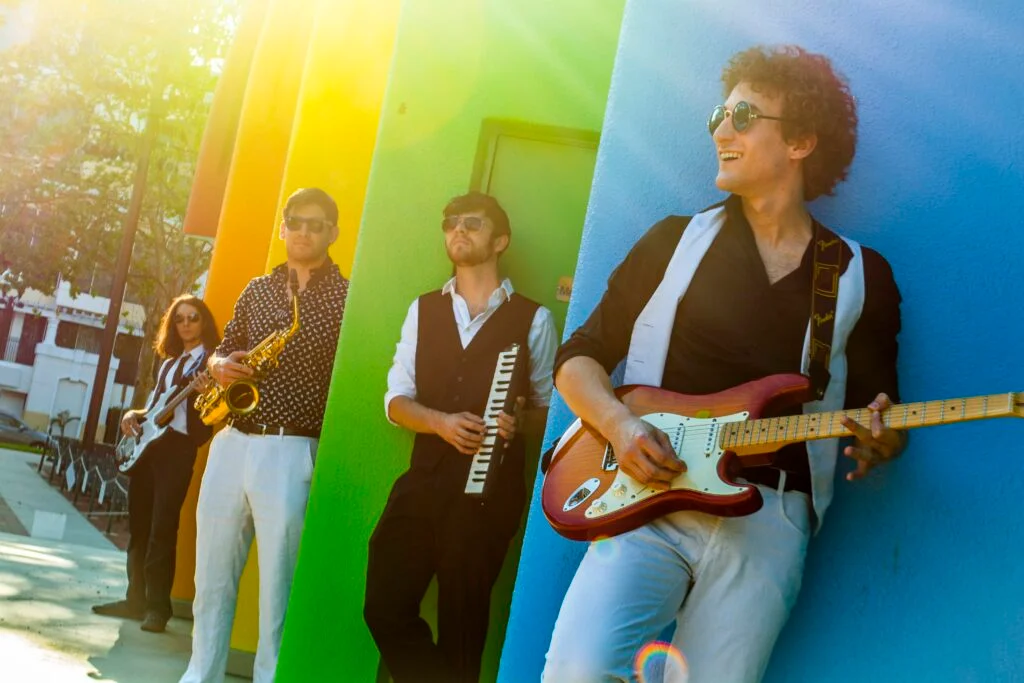
The Raspberries were one of the early power pop bands that could have been huge. With Eric Carmen leading the way, they had radio-friendly hits like “Go All the Way” that blended rock with a sweet pop sensibility. They stood out in a rock world that was leaning heavier, offering something more melodic. For a while, they had real momentum.
But tensions within the band and changes in the industry cut their success short. Carmen went on to a successful solo career, while The Raspberries faded into the background. Their songs have held up surprisingly well, but their time in the spotlight was all too brief.
14. Ten Years After
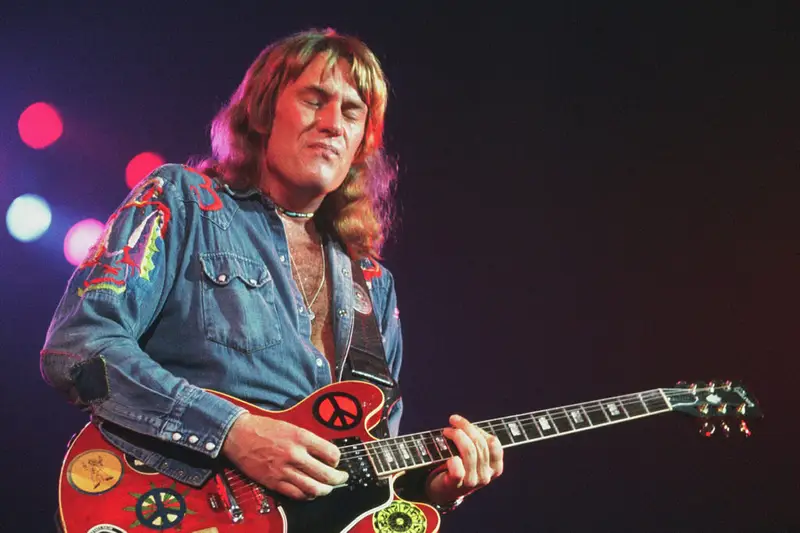
Ten Years After exploded onto the scene after their fiery performance at Woodstock. Alvin Lee’s guitar playing on “I’m Going Home” became legendary, and for a time they were one of the most talked-about blues-rock bands in the world. They rode the momentum with a string of popular albums in the early ’70s.
But they couldn’t sustain it. By the mid-’70s, their sound was considered dated, and they failed to adapt to the changing rock landscape. Alvin Lee’s talent was undeniable, but the group’s fame faded quickly. Today, they’re mostly remembered for that Woodstock moment.
15. Humble Pie
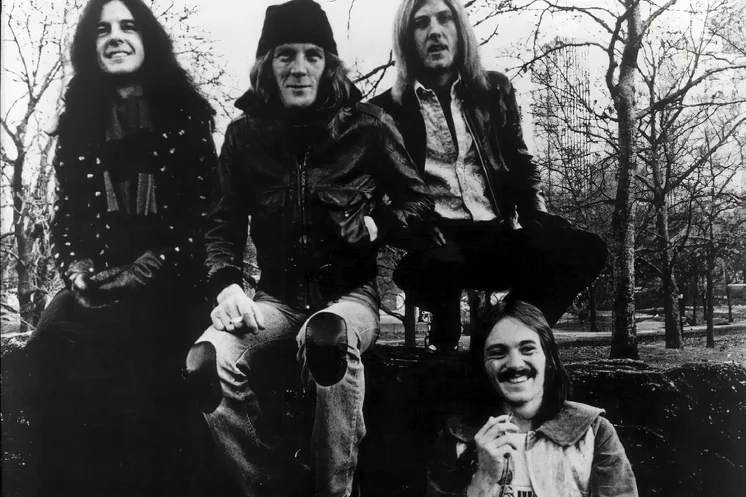
Humble Pie had everything going for them: a charismatic lineup that included Steve Marriott and Peter Frampton, a bluesy hard rock sound, and a reputation for blistering live shows. Songs like “30 Days in the Hole” gave them a gritty edge, and they built a loyal fan following. For a while, they seemed poised for long-term success.
But when Frampton left to go solo, Humble Pie struggled to maintain their momentum. Marriott tried to keep things going, but changing tastes and exhaustion wore them down. By the late ’70s, they were fading from the mainstream conversation. Their legacy is strong with rock fans, but they never became household names.
16. Emerson, Lake & Palmer
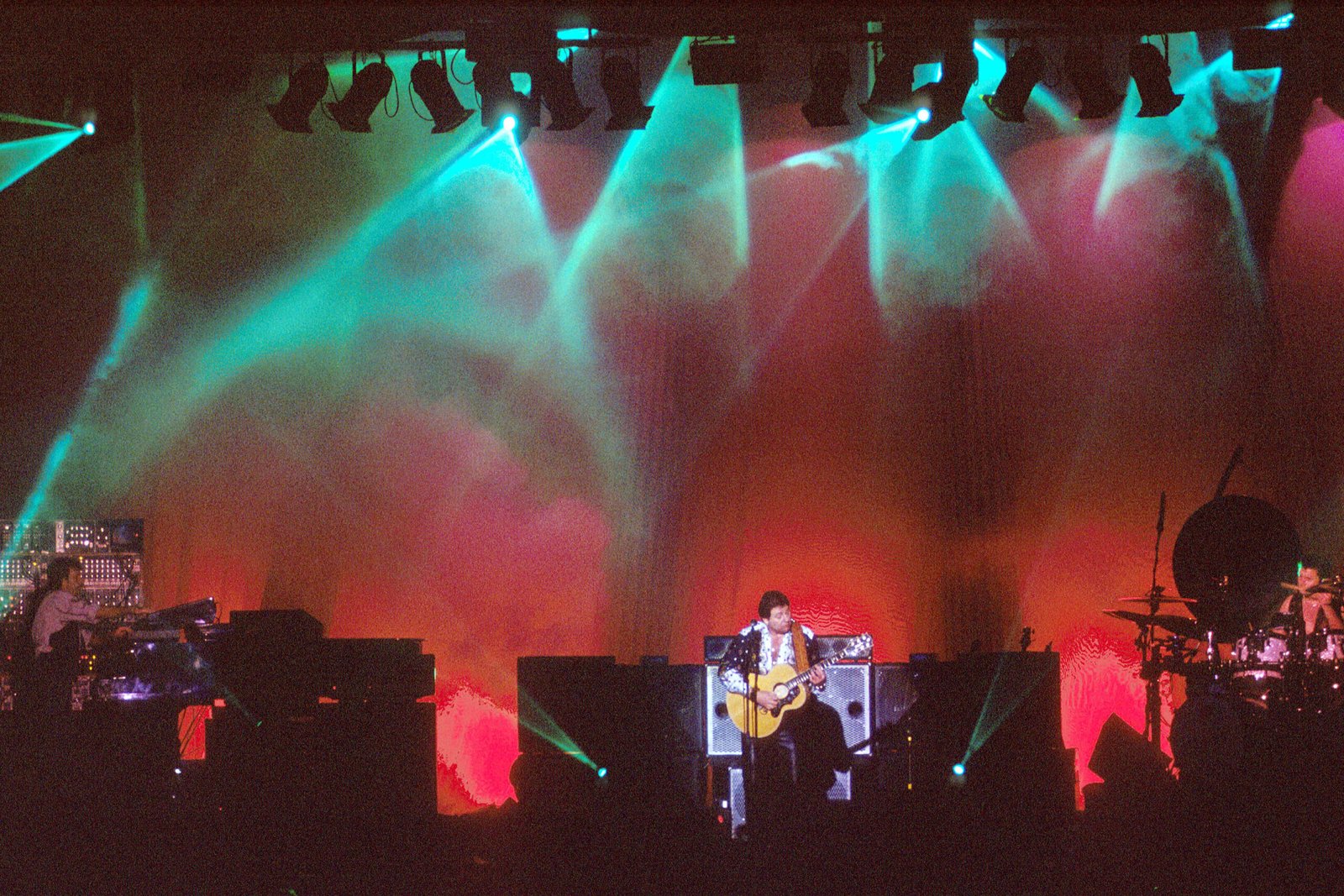
In the early ’70s, Emerson, Lake & Palmer were prog rock royalty. With their elaborate live shows and jaw-dropping musicianship, they pulled in massive crowds and sold millions of records. Albums like Brain Salad Surgery and Trilogy cemented them as leaders of the progressive rock movement. They were as much a spectacle as a band, with stage setups that felt larger than life.
But prog rock’s excess eventually caught up with them. By the late ’70s, audiences wanted simpler, edgier music, and punk made their sprawling style feel outdated. They broke up in 1979, and while they reunited in various forms, they never again reached the towering success of their prime. Today, they’re remembered more for their technical brilliance than their staying power.
17. The Guess Who
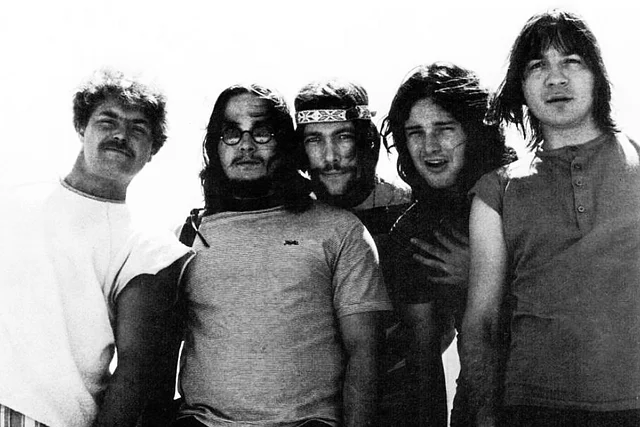
The Guess Who dominated the early ’70s with hits like “American Woman,” “No Time,” and “These Eyes.” Their mix of rock swagger and radio-friendly hooks made them one of the biggest bands of the decade. Burton Cummings’ vocals and Randy Bachman’s guitar work gave them a unique edge, and for a time, they were everywhere.
But once Bachman left and musical tastes started to shift, the group lost steam. They never recaptured the same magic, and their success was quickly overshadowed by newer rock acts. By the end of the decade, they were no longer chart regulars, remembered mostly for their earlier hits. Their songs still get play today, but the band itself faded into the background.
18. Jefferson Starship
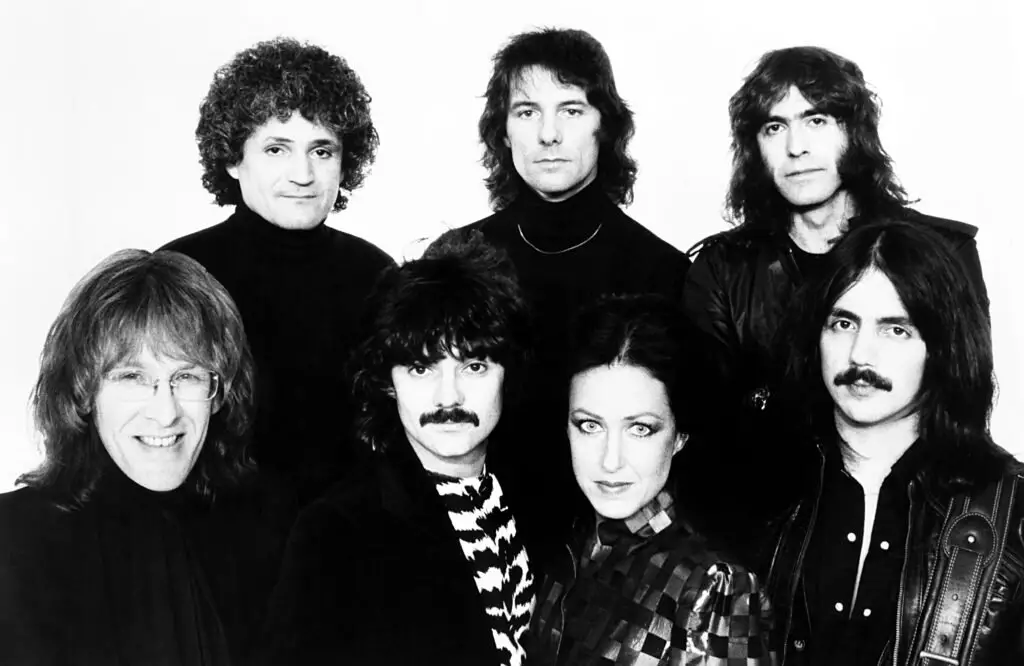
Jefferson Starship rose out of Jefferson Airplane in the mid-’70s and quickly found success with radio staples like “Miracles” and “Count On Me.” They leaned into a more commercial sound than their psychedelic roots, and for a while it worked. Their sleek style kept them on the charts, and they toured constantly, packing arenas.
But by the late ’70s, their lineup was in constant flux, and the band struggled to keep a consistent identity. While they later reemerged in the ’80s as Starship with hits like “We Built This City,” the original Jefferson Starship era slipped away. Fans still debate whether the later version counts, but their ’70s glory years were short-lived compared to their reputation at the time.


